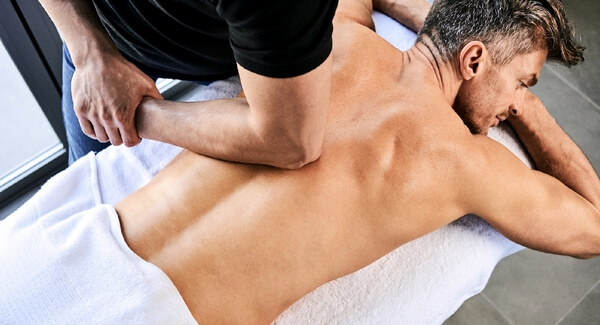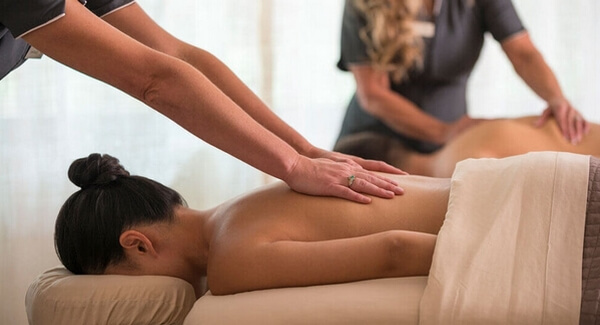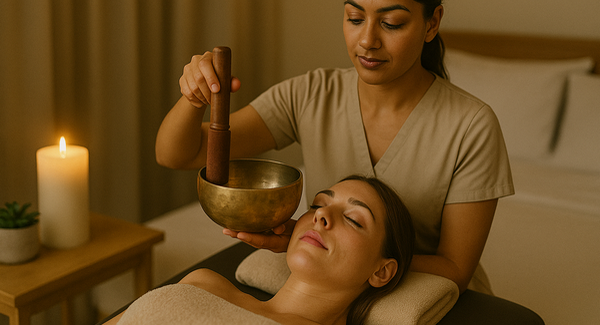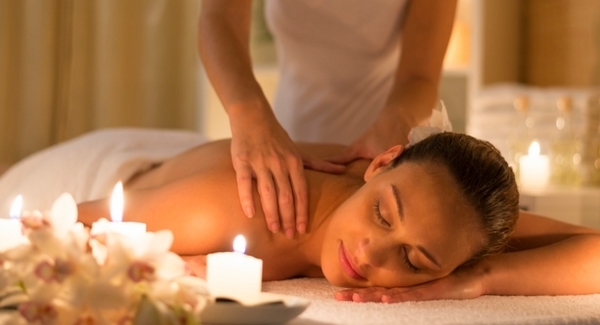Sleep Better, Live Better: How Therapeutic Massage Transforms Rest & Recovery
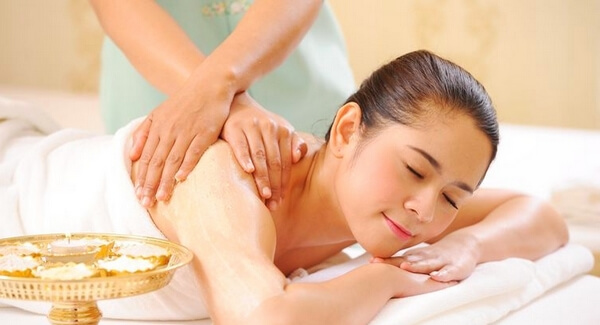
Sleep deprivation and poor-quality rest have become widespread public health concerns, affecting millions worldwide and contributing to serious health issues, including mental health disorders, weakened immunity, and impaired physical recovery. While many turn to medications with potential side effects, therapeutic massage emerges as a natural, evidence-backed approach to improving sleep quality and enhancing recovery.
Professional massage therapy offers a safe, drug-free solution that addresses multiple root causes of sleep problems simultaneously—from physical tension and pain to stress and nervous system hyperactivity. Understanding how massage supports better sleep empowers individuals to make informed decisions about incorporating this therapeutic approach into their wellness routines.
How Massage Therapy Promotes Deep, Restorative Sleep
Therapeutic massage works through multiple physiological pathways to create optimal conditions for quality sleep. By activating the parasympathetic nervous system—often called the "rest and digest" mode—professional massage therapy encourages deep relaxation and naturally prepares the body for restorative sleep.
Neurochemical Changes That Support Sleep
Research demonstrates that massage therapy produces measurable changes in brain chemistry that directly improve sleep quality and duration.
Key neurochemical benefits include:
- Significant reduction in cortisol, the stress hormone that interferes with natural sleep cycles and prevents deep sleep
- Increased production of serotonin, the neurotransmitter that regulates sleep-wake cycles and converts to melatonin
- Enhanced dopamine levels, supporting mood regulation and relaxation responses
- Balanced GABA production, the brain's primary inhibitory neurotransmitter that promotes calm and sleep
- Reduced norepinephrine, decreasing the fight-or-flight response that keeps people awake
These neurochemical improvements create a natural cascade of relaxation that supports not just falling asleep, but achieving the deep, restorative sleep phases essential for health and recovery.
Physical Conditions for Optimal Sleep
Beyond neurochemical changes, massage therapy creates the ideal physical environment for quality sleep by addressing common barriers to rest.
Physical improvements include:
- Lowered heart rate and blood pressure, creating cardiovascular conditions conducive to sleep onset
- Reduced muscle tension and trigger points, eliminating physical discomfort that disrupts sleep
- Improved circulation and lymphatic drainage, reducing inflammation that can interfere with comfort
- Enhanced breathing patterns, supporting deeper, more relaxed respiration during sleep
- Decreased pain sensitivity, allowing for uninterrupted rest throughout the night
Scientific studies consistently demonstrate that massage therapy enhances both sleep duration and quality across diverse populations—from healthy adults seeking better rest to those managing insomnia, chronic pain, or anxiety disorders.
Supporting Physical Recovery Through Enhanced Sleep Quality
Quality sleep is fundamental to the body's healing and regeneration processes, and massage therapy supports recovery by both improving sleep and directly enhancing the body's repair mechanisms.
Sleep-Recovery Connection
During deep sleep phases, the body performs critical recovery functions including tissue repair, immune system strengthening, and memory consolidation. Massage therapy enhances these processes through multiple mechanisms.
Recovery benefits include:
- Enhanced growth hormone release during deep sleep phases, accelerating tissue repair and muscle recovery
- Improved protein synthesis for muscle rebuilding and cellular repair processes
- Better immune system function through increased restorative sleep and reduced chronic stress
- Faster metabolic waste removal through improved circulation and lymphatic function
- Reduced inflammation markers that can interfere with healing and recovery
Physical Comfort and Sleep Quality
Physical discomfort is one of the primary barriers to quality sleep. Professional massage therapy directly addresses these issues while creating conditions for better rest.
Comfort improvements include:
- Significant muscle tension relief, making it easier to fall asleep and maintain comfortable positions
- Improved joint mobility and flexibility, reducing stiffness that can disrupt sleep
- Targeted pain reduction for conditions like fibromyalgia, arthritis, or chronic back pain
- Better circulation to extremities, reducing restless leg syndrome and circulation-related discomfort
- Enhanced body awareness, helping individuals find and maintain comfortable sleep positions
This combination of better sleep quality and direct physical benefits creates a positive cycle supporting faster recovery, increased daytime energy, and improved overall health outcomes.
Mental Health Benefits and Sleep Improvement
The relationship between sleep and mental health is bidirectional—poor sleep worsens mental health conditions, while anxiety and depression disrupt sleep quality. Massage therapy addresses both sides of this challenging cycle.
Breaking the Anxiety-Insomnia Cycle
Anxiety and sleep problems often reinforce each other, creating persistent cycles that are difficult to break without intervention. Massage therapy provides effective support for both conditions simultaneously.
Mental health benefits include:
- Significant anxiety reduction through nervous system regulation and stress hormone reduction
- Improved mood stability through better sleep quality and neurochemical balance
- Enhanced emotional regulation supported by adequate restorative sleep phases
- Reduced rumination and racing thoughts that commonly interfere with sleep onset
- Better stress resilience through improved sleep quality and recovery
Supporting Depression and Sleep Quality
Depression often involves sleep disturbances, including early morning awakening, fragmented sleep, and non-restorative rest. Massage therapy can help address these specific sleep-related symptoms of depression.
Depression-related sleep improvements:
- Better sleep initiation through reduced anxiety and physical tension
- More consistent sleep patterns supported by nervous system regulation
- Improved sleep maintenance with fewer middle-of-night awakenings
- Enhanced morning energy and mood from more restorative sleep
- Increased motivation for self-care activities that support mental health
Important note: While massage therapy provides valuable support for mental health and sleep, it should complement rather than replace professional mental health treatment for diagnosed conditions.
Evidence-Based Research on Massage and Sleep Quality
The effectiveness of massage therapy for sleep improvement is supported by extensive clinical research across various populations and conditions.
Clinical Study Results
Multiple peer-reviewed studies demonstrate massage therapy's effectiveness for sleep enhancement across diverse populations and conditions.
Key research findings include:
- Fibromyalgia patients showed significant improvements in sleep quality and reduced fatigue after massage therapy programs
- Cancer patients experienced better sleep quality and reduced anxiety following massage interventions
- Elderly populations demonstrated improved sleep efficiency and reduced nighttime awakenings
- Hospitalized patients showed better sleep quality and faster recovery with massage therapy
- Chronic pain sufferers reported improved sleep duration and quality alongside pain reduction
Measurable Sleep Improvements
Research using objective sleep measurements confirms massage therapy's effectiveness for multiple aspects of sleep quality.
Documented improvements include:
- Reduced sleep latency (time to fall asleep) by an average of 15-30 minutes
- Increased deep sleep phases essential for physical recovery and immune function
- Better REM sleep quality important for mental health and cognitive function
- Fewer nighttime awakenings and improved sleep maintenance
- Enhanced sleep efficiency (percentage of time in bed actually spent sleeping)
These findings demonstrate that massage therapy provides measurable, objective improvements in sleep quality rather than just subjective feelings of relaxation.
Optimal Massage Approaches for Sleep Enhancement
Different massage techniques and scheduling approaches can be optimized specifically for sleep improvement and recovery support.
Best Massage Techniques for Sleep
Certain massage modalities are particularly effective for promoting relaxation and sleep quality when performed by qualified practitioners.
Recommended techniques include:
- Swedish massage with gentle, flowing strokes that promote overall relaxation and nervous system calming
- Aromatherapy massage incorporating sleep-promoting essential oils like lavender or chamomile
- Craniosacral therapy for deep nervous system relaxation and stress relief
- Lymphatic drainage massage for gentle detoxification and immune system support
- Myofascial release to address chronic tension patterns that interfere with comfortable rest
Timing and Frequency Considerations
The timing and frequency of massage sessions can be optimized to maximize sleep benefits and support consistent improvement.
Optimal scheduling includes:
- Evening sessions 2-4 hours before bedtime to allow relaxation effects to peak at sleep time
- Weekly treatments for establishing new sleep patterns and addressing chronic sleep issues
- Bi-weekly maintenance once sleep quality improves to sustain benefits
- Consistent timing to support circadian rhythm regulation and sleep routine establishment
- Longer sessions (60-90 minutes) for deeper relaxation and more sustained effects
Practical Implementation for Better Sleep
Successfully using massage therapy for sleep improvement requires thoughtful planning and integration with other sleep-supporting practices.
Maximizing Sleep Benefits from Massage
Combining professional massage therapy with evidence-based sleep hygiene practices enhances effectiveness and supports long-term improvement.
Implementation strategies include:
- Schedule sessions strategically in the evening or a few hours before bedtime to optimize relaxation timing
- Create post-massage routines that maintain relaxation and prepare for sleep
- Combine with sleep hygiene including consistent sleep schedules and optimal sleep environments
- Limit stimulating activities after massage sessions to maintain relaxation benefits
- Stay hydrated but avoid excessive fluids close to bedtime after massage
Creating Sleep-Supporting Environments
The environment following massage therapy can significantly impact its sleep benefits, requiring attention to factors that support continued relaxation.
Environmental considerations include:
- Dimmed lighting after massage sessions to support natural melatonin production
- Cool, comfortable bedroom temperature optimal for sleep quality
- Reduced screen time and electronic stimulation after massage therapy
- Calming activities like gentle stretching, reading, or meditation
- Comfortable sleep surfaces that support the relaxed muscle state achieved through massage
Massage Therapy vs. Other Sleep Solutions
Understanding how massage therapy compares to other sleep interventions helps individuals make informed decisions about their sleep improvement strategies.
Natural Sleep Aid Comparisons
Massage therapy offers unique advantages compared to other natural sleep approaches, often providing more comprehensive benefits.
Comparative advantages include:
- Immediate physical impact on muscles and nervous system, unlike supplements that require time to metabolize
- Addresses multiple sleep barriers simultaneously including stress, pain, and nervous system hyperactivity
- Minimal side effects when provided by qualified practitioners, unlike some herbal supplements or medications
- Professional supervision ensuring safety and technique optimization for individual needs
- Additional health benefits beyond sleep improvement including pain relief and stress management
Integration with Other Approaches
Massage therapy works well in combination with other evidence-based sleep interventions, often enhancing their effectiveness.
Complementary approaches include:
- Cognitive behavioral therapy for insomnia (CBT-I) combined with massage for comprehensive sleep support
- Meditation and mindfulness practices enhanced by the relaxation achieved through massage
- Exercise programs supported by massage therapy for better recovery and sleep quality
- Nutritional approaches complemented by massage therapy's stress reduction benefits
- Medical treatments when appropriate, with massage providing additional support
Special Populations and Sleep-Focused Massage
Different populations may have specific considerations and benefits when using massage therapy for sleep improvement.
Athletes and Active Individuals
Athletes and highly active individuals often struggle with sleep due to training stress, muscle tension, and elevated cortisol levels. Massage therapy provides targeted support for their specific needs.
Athletic population benefits include:
- Enhanced recovery sleep following intense training or competition
- Reduced muscle tension that can interfere with comfortable rest positions
- Better stress hormone regulation supporting natural sleep-wake cycles
- Improved performance through better sleep quality and recovery
- Injury prevention through better rest and tissue recovery
Older Adults and Sleep Quality
Aging often brings sleep challenges, including reduced deep sleep, frequent awakenings, and physical discomfort. Massage therapy addresses many age-related sleep issues.
Senior population benefits include:
- Improved sleep efficiency and reduced time awake during the night
- Better pain management for arthritis and chronic conditions that disrupt sleep
- Enhanced relaxation counteracting anxiety about sleep and aging
- Social connection and caring touch that supports emotional well-being
- Medication reduction potential with healthcare provider guidance
Individuals with Chronic Conditions
People managing chronic health conditions often experience sleep disruptions that massage therapy can help address safely and effectively.
Chronic condition considerations include:
- Fibromyalgia support through gentle techniques that reduce pain and improve sleep
- Cancer care integration with oncology massage approaches for sleep and recovery
- Chronic pain management supporting both comfort and sleep quality
- Autoimmune condition support through stress reduction and immune system benefits
- Mental health condition integration as part of comprehensive treatment approaches
Safety Considerations and Best Practices
While massage therapy is generally safe for sleep improvement, certain considerations ensure optimal safety and effectiveness.
Contraindications and Precautions
Understanding when to modify or avoid massage therapy ensures safe treatment for all clients seeking sleep improvement.
Important considerations include:
- Acute illness or fever requiring postponement of massage therapy
- Certain medications that may affect response to massage or increase bleeding risk
- Recent injuries or surgeries requiring medical clearance and technique modifications
- Pregnancy considerations requiring specialized prenatal massage approaches
- Cardiovascular conditions needing healthcare provider clearance and technique adaptation
Finding Qualified Practitioners
Working with properly trained and licensed massage therapists ensures safety and maximizes sleep-related benefits.
Practitioner selection criteria include:
- Current massage therapy licensing in your jurisdiction
- Professional liability insurance and proper credentials
- Experience with sleep-related massage and relaxation techniques
- Understanding of contraindications and safety considerations
- Professional communication and ethical practice standards
Frequently Asked Questions About Massage and Sleep
How soon after a massage will I notice better sleep?
Many people report improved sleep quality the same night after a massage session. The immediate relaxation effects and reduction of stress hormones can enhance that night's sleep. However, consistent improvements typically develop over 2-4 weeks of regular massage therapy as your nervous system learns to regulate more effectively.
Which types of massage are best for sleep problems?
Swedish massage, aromatherapy massage, and craniosacral therapy are most commonly recommended for sleep improvement. The best approach depends on your specific needs—gentle Swedish massage for general relaxation, aromatherapy massage for anxiety-related sleep issues, or craniosacral therapy for nervous system regulation and balance. Consult with a qualified therapist for personalized recommendations.
Can massage help with insomnia caused by anxiety?
Yes, massage therapy is particularly effective for anxiety-related insomnia. It reduces nervous system hyperactivity, lowers cortisol levels, and promotes the relaxation response needed for sleep onset. Many clients with anxiety-related sleep problems experience significant improvement when massage therapy is combined with good sleep hygiene practices.
How often should I get a massage for sleep problems?
For chronic sleep issues, weekly massage sessions are often most effective initially, as this frequency helps establish new nervous system patterns and sleep cycles. Once sleep improves, many people maintain benefits with bi-weekly or monthly sessions. The optimal frequency depends on your individual needs, the severity of your sleep problems, and your response to treatment.
Is massage a replacement for sleep medication?
Massage therapy is not a replacement for prescribed sleep medications, but it can be a valuable complementary approach. Many people find that they can reduce their reliance on sleep aids when combining massage therapy with good sleep hygiene. However, any medication changes should always be discussed with your healthcare provider.
Can massage help with sleep problems during pregnancy?
Yes, prenatal massage can be beneficial for pregnancy-related sleep issues, including back pain, leg cramps, and anxiety. Specialized prenatal massage techniques are safe during pregnancy and can significantly improve sleep comfort. Always work with a therapist trained in prenatal massage and inform them of your pregnancy stage.
What should I do after a massage to maximize sleep benefits?
After a sleep-focused massage, maintain the relaxation by avoiding stimulating activities, keeping lighting dim, staying hydrated but limiting fluids before bed, and engaging in calm activities like gentle reading or meditation. Create a consistent post-massage routine that supports your transition to sleep.
Can children benefit from massage for sleep issues?
Yes, pediatric massage can help children with sleep problems, especially those related to anxiety, growing pains, or sensory processing issues. Always use therapists trained in pediatric massage and ensure the child is comfortable with the treatment. Parent presence and shorter sessions are often recommended for children.
Are there any side effects of massage therapy for sleep?
Massage therapy for sleep improvement has minimal side effects when provided by qualified practitioners. Some people may experience temporary soreness, fatigue, or emotional release. These effects typically resolve within 24 hours and often indicate the body is responding positively to treatment.
How does massage compare to sleep medications in terms of effectiveness?
While research shows massage therapy can be very effective for sleep improvement, it works differently than medications. Massage addresses multiple root causes of sleep problems and provides additional health benefits, while medications typically work faster but may have side effects. Many people find massage therapy provides more sustainable long-term improvements in sleep quality.
Conclusion: Investing in Natural, Restorative Sleep
Quality sleep is foundational to physical health, mental clarity, and emotional resilience, yet millions struggle with sleep problems that significantly impact their daily lives. As awareness grows of the limitations and potential risks of pharmaceutical sleep aids, massage therapy emerges as a safe, effective, and natural approach to achieving restorative rest.
Professional massage therapy addresses sleep problems through multiple pathways—reducing stress hormones, releasing physical tension, calming the nervous system, and supporting the body's natural relaxation responses. Unlike single-action interventions, massage therapy treats the whole person, addressing both the physical and psychological factors that contribute to poor sleep quality.
The extensive research supporting massage therapy for sleep improvement, combined with its excellent safety profile and additional health benefits, makes it an attractive option for anyone seeking better sleep without pharmaceutical intervention. When provided by qualified practitioners as part of a comprehensive approach to sleep hygiene, massage therapy can provide sustainable improvements in both sleep quality and overall well-being.
Ready to experience the sleep-enhancing benefits of professional massage therapy? Connect with qualified, licensed practitioners who understand sleep physiology and can customize treatments to support your specific needs for better rest and recovery.
This article is reviewed by certified massage therapists and sleep specialists, updated regularly to reflect current research and best practices. For persistent sleep problems or underlying health conditions, consult a qualified healthcare provider for a comprehensive evaluation and treatment planning.
Search Massage Therapists Near You.
More From Our Blog
Latest Blogs
Tips: How to Create the Perfect At-Home Mobile Massage Experience
Massage Therapy as a Career: Pathways to a Fulfilling Profession Globally
Building a Brand of Trust: Digital Age Strategies for Massage Therapists
The Future of Touch: How Technology is (and Isn’t) Changing Massage Therapy
A Global Look at Massage Therapy Qualifications - USA, Canada, Australia & Beyond
Beyond the Salon: Unique Massage Therapies You Never Knew Existed
The Power of Two: Exploring the Benefits and Etiquette of Couples Massage
Massage for Every Body: Celebrating Inclusivity in the Wellness Space
Why Men Are Embracing Professional Massage More Than Ever Before
The Healing Hands: Inspiring Stories of Massage Therapists Changing Lives
View All Blogs
Advertise with Massages Me and Grow Your Business!
Create an Ad within minutes & increase your earning potential as we connect you with more clients!
